'I lost my eye due to skin cancer'
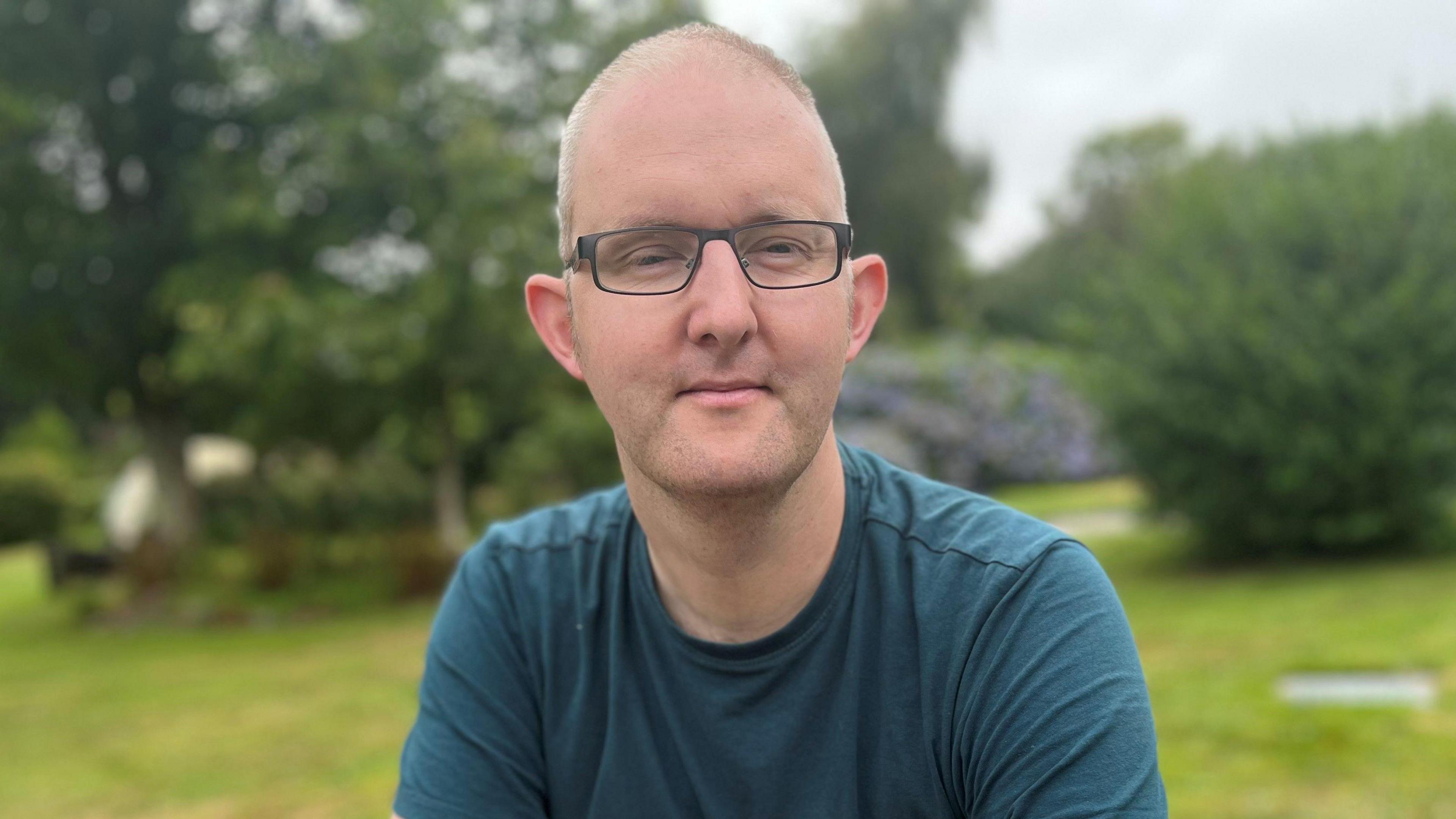
Ross Ellis said it was "brutal" having his right eye removed and replaced with a false one
- Published
A man in his 30s who lost his eye due to stage four melanoma skin cancer, external is sharing his harrowing journey to warn others about sunburn.
Ross Ellis, from Plymouth, said he wanted to tell people heading to beaches in the summer to protect themselves and their children.
Melanoma, the most dangerous form of skin cancer, is increasing nationally and incidence rates in the South West region are above the England average.
Mr Ellis had his eye removed when it was discovered the cancer had spread to his brain, lungs and liver in November 2023, eight years after having treatment for a cancerous mole.
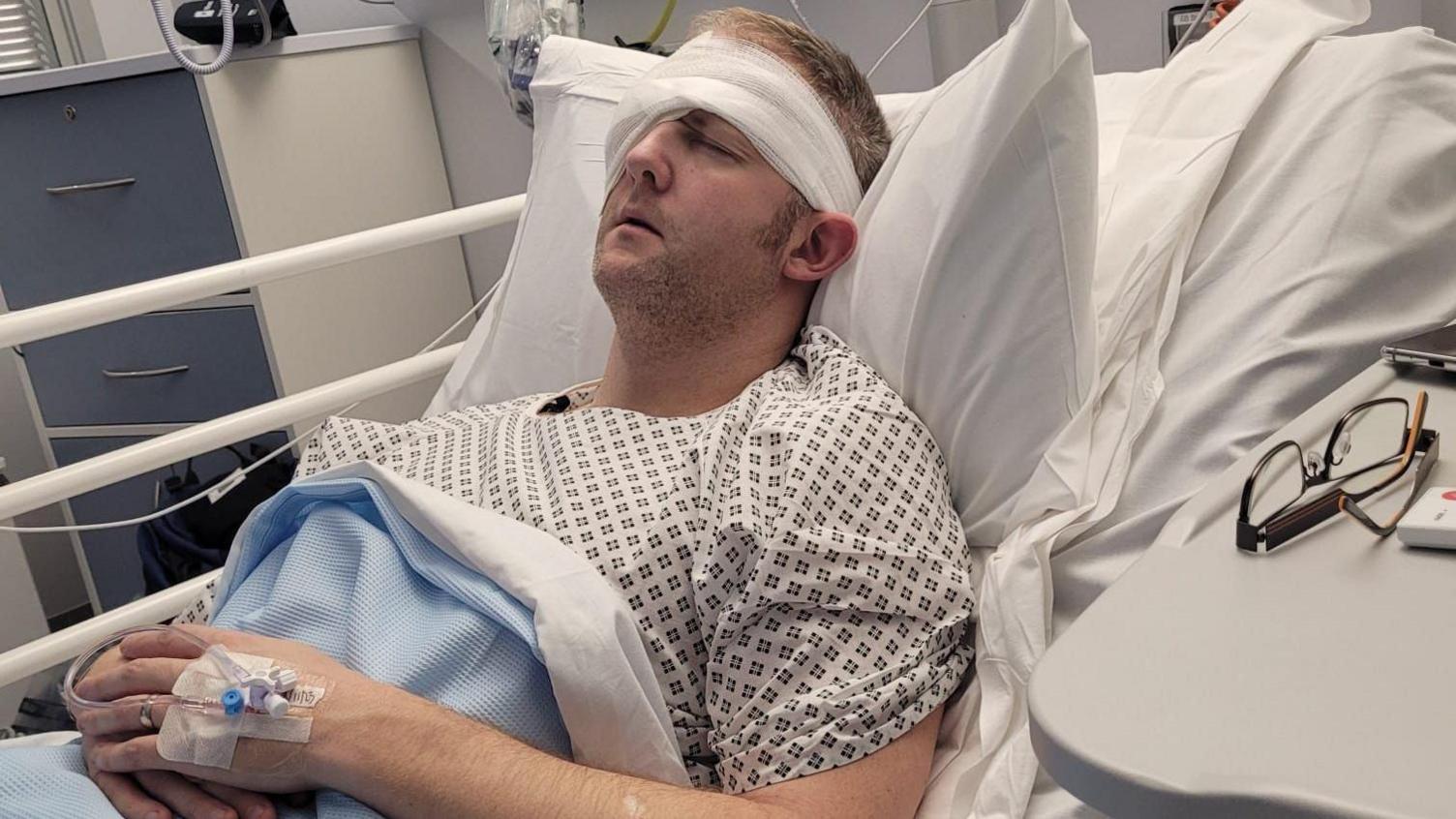
Ross Ellis said he had no idea what trauma melanoma would cause him
DID YOU KNOW?
Skin-cancer can be caused by one incident of sunburn
No tan is a “safe tan,” although burning poses a higher melanoma risk
Melanoma does not always occur where your skin burned
Using a sunbed once increases your risk of skin cancer by 75%
In very rare cases melanoma can affect areas such as the eye, external and genitals
Source: British Association of Dermatologists
Ross Ellis, who is married with two children, said he believed his cancer was caused by one severe case of sunburn in his teens.
The university admin worker was first diagnosed in 2015 with stage two melanoma in a mole.
Although the "psychological impact was massive", he had surgery to remove the cancer and a lymph node biopsy came back all-clear.
But in a rare situation, eight years later in 2023 he found the cancer had spread through his body with multiple tumours, blinding one eye.
He said: "I had to have immediate surgery the following day to remove my eye and it was a pretty brutal operation."
He said the stage four diagnosis brought "extreme shock".
"Melanoma is very dangerous and you need to take precautions," he told BBC Radio Cornwall.

Dermatologists say people should enjoy the outdoors but resist "binging on the sun"
In the wider south west region around 32 cases are diagnosed per 100,000 females each year and 37 cases per 100,000 males, higher than the overall UK rate, external of 28.
This includes Cornwall and the Isles of Scilly, Devon, Somerset, Dorset, Wiltshire, Bristol, Bath and Gloucestershire, Cancer Research UK said.
In Cornwall the incidence rate for men and women combined is 48 per 100,000.
The fifth most common cancer in the UK, if caught early, melanoma has a 100% survival rate, which highlights the importance of the early detection, experts say.
Dr Rachael Abbott, a consultant dermatologist with the British Association of Dermatologists warned against a tendency to "binge" on the sun.
"If you live by the coast and some of you might be more 'outdoorsy' as well, we’d expect to see higher cancer rates in people who have more UV-exposure," she said.
She added the higher rates could also be down to an ageing regional population as incidences increase with age, due to cell DNA damage accumulating.
However, it also occurs relatively frequently at younger ages, external compared to other cancers, Cancer Research UK said.
Susanna Daniels, CEO of charity Melanoma Focus, said: "Temperatures are increasing in the UK and the temperatures in the South West are probably warmer than the rest of the country.
"Then there's quite a number of beaches so if there's warm weather people will be outside, potentially without significant protection".
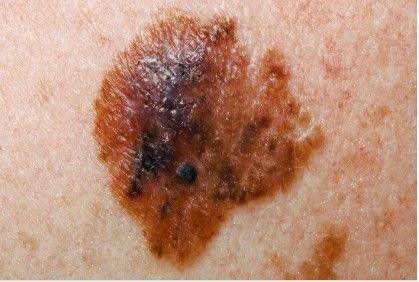
Melanomas can be difficult to diagnose but often have uneven borders and colours
Skin cancer types
Basal cell carcinoma – the most common skin cancer. Most are curable and cause minimal damage when caught and treated early
Squamous cell carcinoma – most are low risk and can be cured with surgery
Melanoma – the least common and most aggressive; can spread through the body
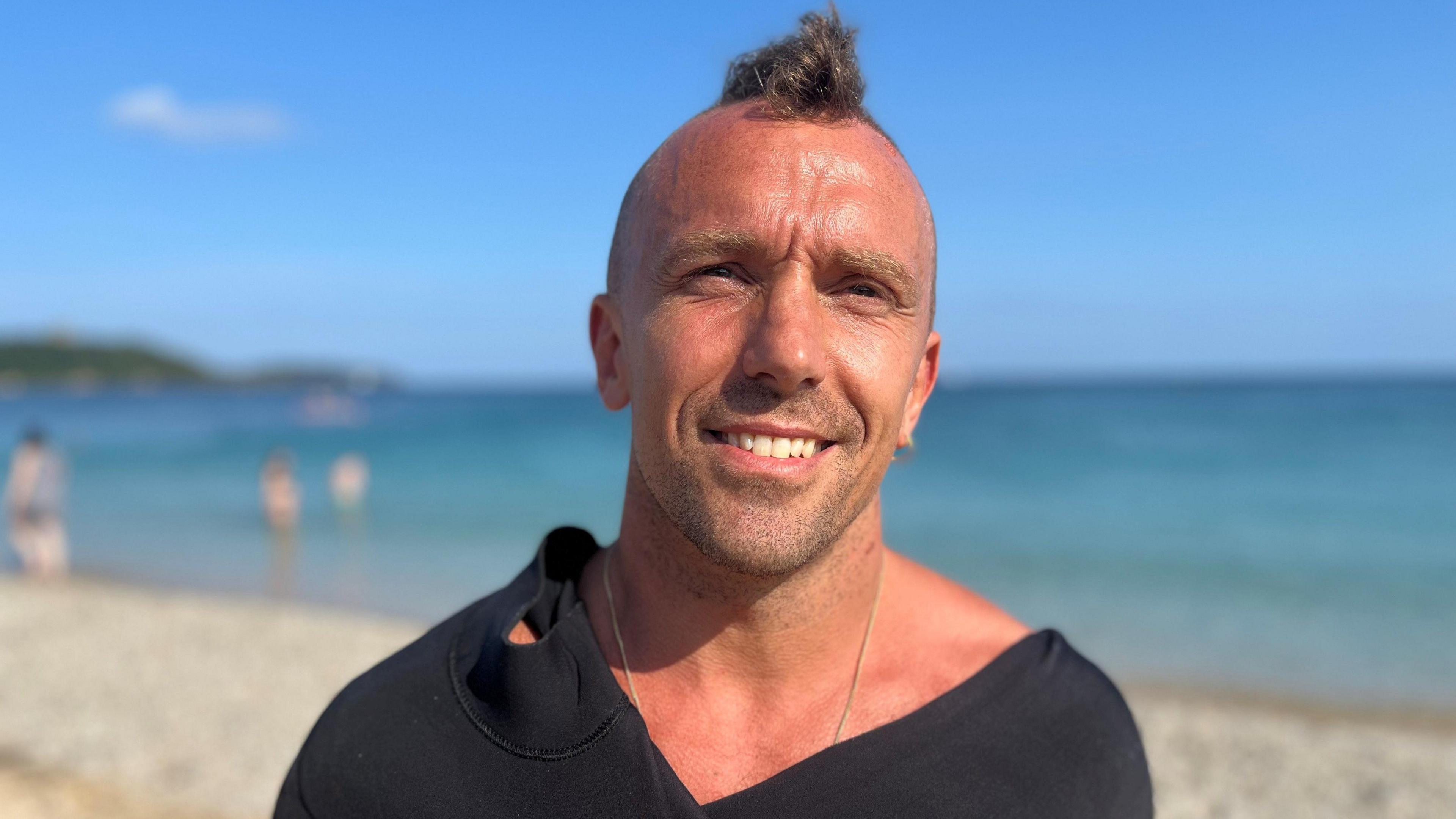
Kieran Bruce, from Falmouth, said he always wears factor 50 sun screen at the beach
Dr Sandy Anderson, a consultant dermatologist at the Royal Cornwall Hospital, said they see a "real range of patients".
"You should never wait, if you think a mole is changing and you're worried it might be a melanoma, that's the time to get it checked," he said.
"Enjoy Cornwall but protect yourself."
On Gyllyngvase beach, Falmouth, Kieran Bruce told the BBC he worked outside and always wore factor 50 sun screen.
"I know down in Cornwall a lot of people are pretty clued up with it," he said.
But others admitted to relaxed attitudes.
Nicky, sunbathing, said: "I like to tan... I'm still here, I'm 54 and I go in the sun, I'm just saying."
Melanoma incidence rates have increased by almost a third in the UK over the past decade, and are projected to rise by a further 9% by about 2039.
Non-melanoma skin cancers, external are much more common and increasing at even higher rates.
This has put pressure on dermatology services nationwide, the British Association of Dermatologists said.
About one-in-nine cases are due to UV-exposure and are therefore preventable, according to Cancer Research UK.
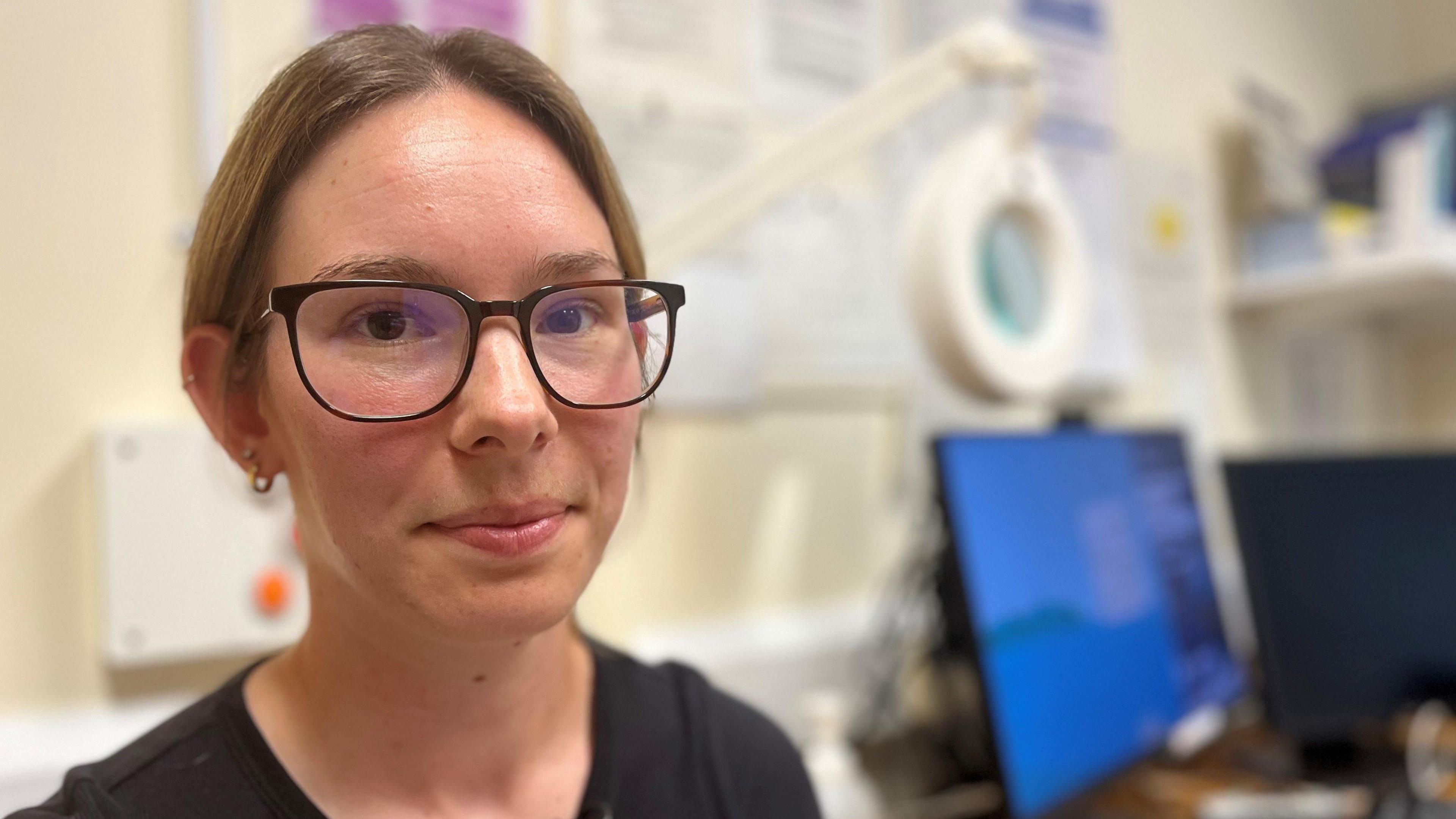
Florence said she was "passionate" about spreading warnings after her diagnosis
HOW TO PROTECT YOURSELF
Know your skin-type – if you burn easily you are at increased risk
Follow the UV index
Avoid sun exposure between the hottest hours of 11:00 and 14:00; wear a wide-brimmed hat, sun glasses and cover with clothing
Children should wear factor 50 sun screen; adults should wear 50 or factor 30 with a good UVA rating
Reapply ideally every two hours
Note that most sun screens are fully effective for only 12 months
Regularly check moles and see your GP if you spot changes
Seek immediate medical attention if you have a very itchy or bleeding mole
Source: British Association of Dermatologists
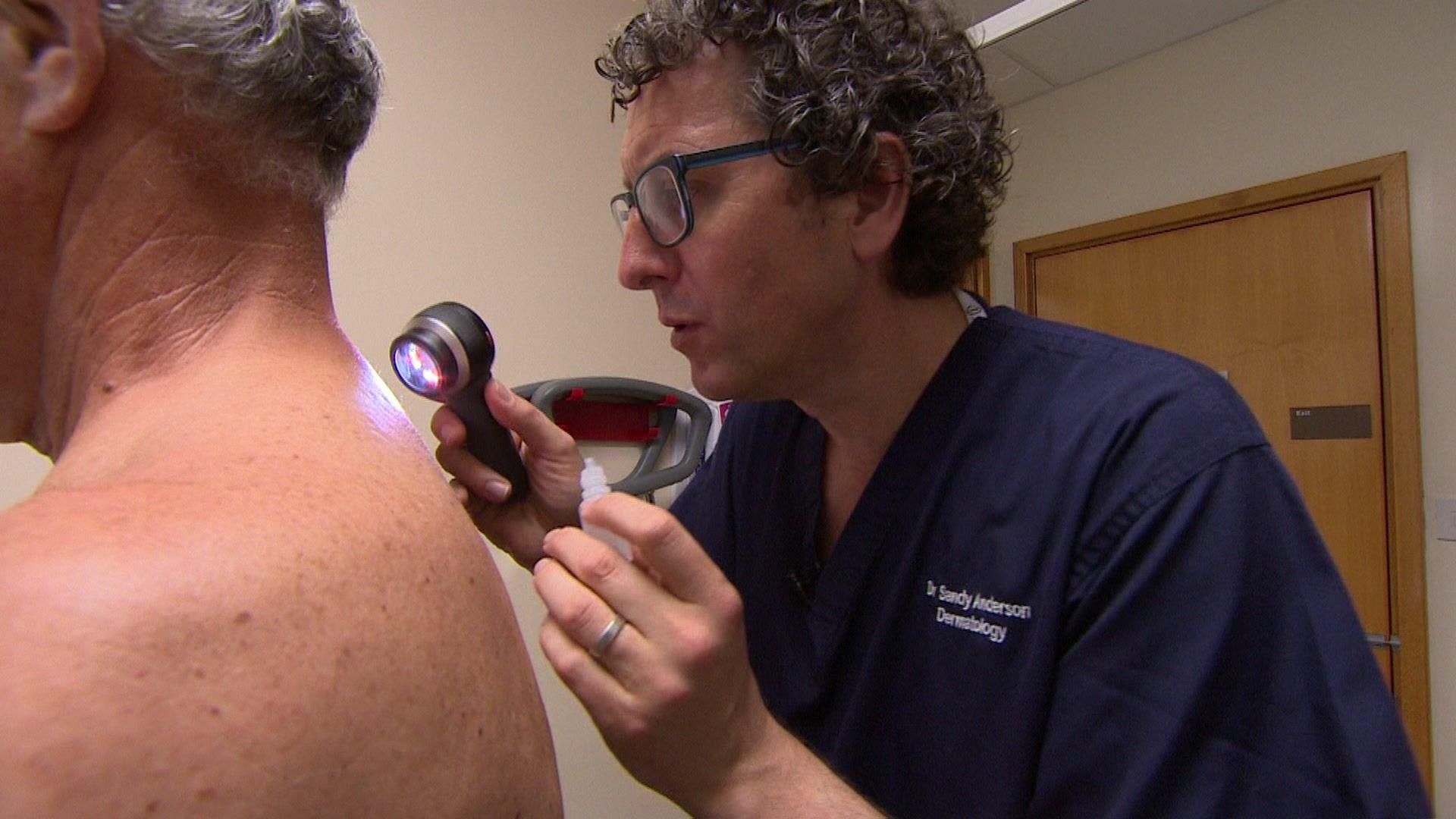
Dr Sandy Anderson said early diagnosis was extremely important
After Ross Ellis had his eye removed at the end of 2023, he began undergoing a relatively new form of treatment in 2024; dual immunotherapy - to remove remaining tumours in his lung, liver and brain.
After three sessions through an intravenous drip, no active cancer was found.
Treatments for advanced melanoma have advanced hugely over the past decade with the introduction of immunotherapies, which help the body's immune system to recognise and destroy cancer cells more effectively.
Previously stage four patients survived for an average of six to nine months but a recent study, external of immunotherapy patients showed about half had survived after six-and-a-half years.
However, it is common for healthy parts of the body to be affected too and for Mr Ellis it was gruelling.
Mr Ellis said: "I had a complete response.
"It took out all the legions in my lung, liver, brain - unfortunately the side effects took the organs with it - I had hepatitis, diabetes, lung infections.
"You'll go through the side effects if it means you're going to live."
'Get checked'
There has been a 7% rise in melanoma rates in adults aged 25-49 in the last 10 years.
It is the most commonly diagnosed cancer in females aged 15-24, external, though more common among men than women with increasing age.
Florence Scammell, from Lanner, Cornwall, was "overwhelmed" to be diagnosed with stage two melanoma in a mole in her early 20s.
She said: "I think people think 'it's never going to happen to me', but it might.
"You only get one skin, it's precious."
Simon Bales, a stage 2-3 patient in his 70s, urged people to get checked if they had any doubts and said he felt "grateful" his had been caught.
Learning about the dangers of UV rays became part of the school curriculum in England in September 2020, which dermatologists hope will make a difference in future.
However, the British Association of Dermatologists said more awareness campaigns were needed.
If you have been affected by any of the issues in this story, help and support is available at BBC Action Line.
Follow BBC Devon on X (formerly Twitter), external, Facebook, external and Instagram, external. Send your investigation ideas to southwestinvestigationsteam@bbc.co.uk, external.
Related topics
More stories about skin cancer
- Published27 May 2024

- Published26 April 2024
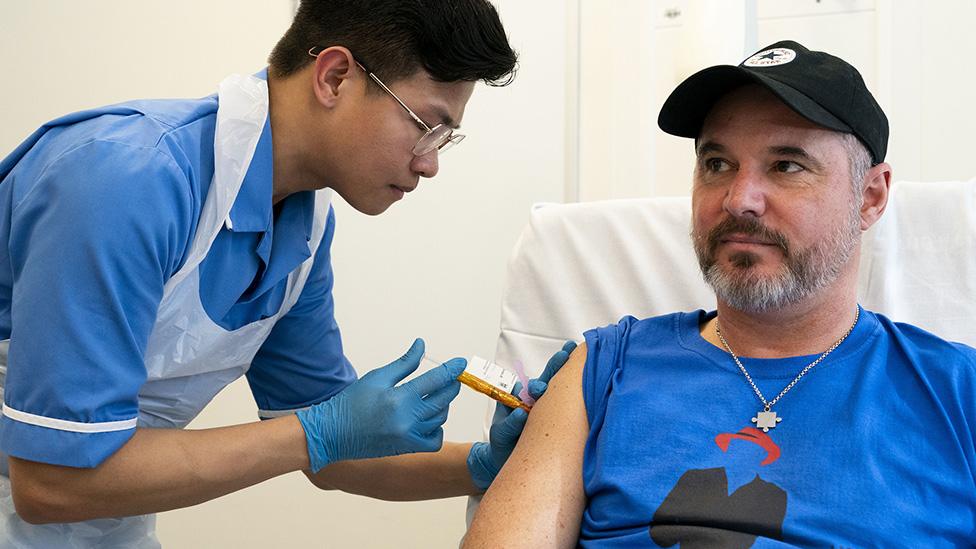
- Published14 June 2024
